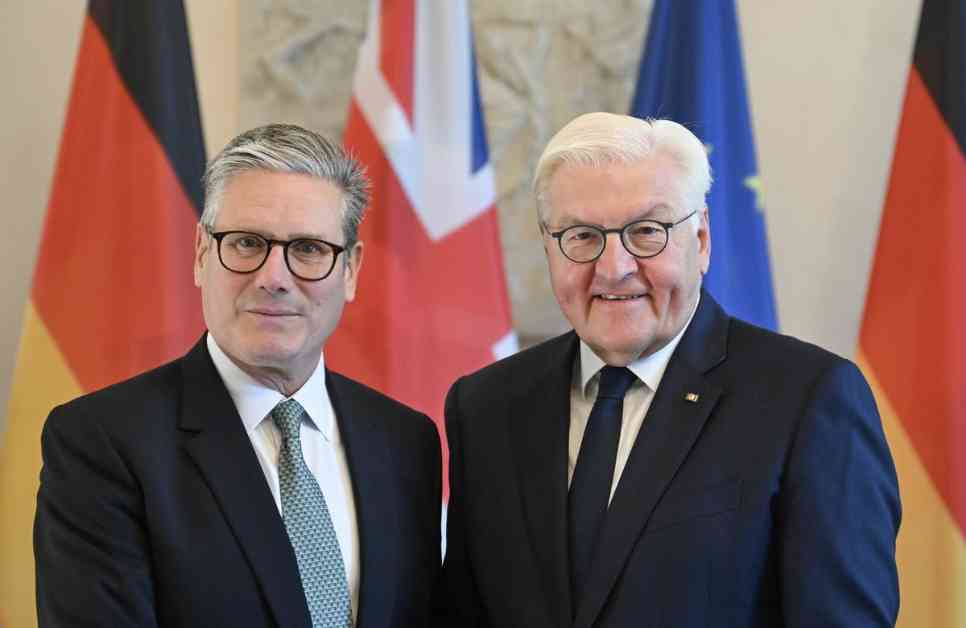Keir Starmer Raises Concerns Over ‘Income Tax Raid’ Amid Post-Brexit Talks in Germany
Sir Keir Starmer, the Prime Minister of the United Kingdom, is currently in Germany for two days of meetings with German Chancellor Olaf Scholz to discuss various agreements between the two countries. The focus of the discussions includes energy, security, technology, and science partnerships. Starmer is aiming to reset the relationship with Europe following the aftermath of Brexit, which he believes was mishandled by the previous Tory government.
During his visit to Berlin, Starmer emphasized the importance of strengthening ties with the EU and finding common ground on key issues such as illegal migration and economic growth. He sees this as a “once-in-a-generation opportunity” to rebuild trust and cooperation with European partners.
The opposition Tories, however, have raised concerns about Starmer’s plans for the upcoming October Budget. They accuse him of plotting “ruinous tax rises” on working people, including potential hikes in capital gains tax, inheritance tax, and pensions. The Prime Minister, on the other hand, reassured the public that taxes on working people, such as national insurance, VAT, and income tax, will not be increased in the upcoming budget.
In his first keynote speech, Starmer emphasized that those with the “broadest shoulders” should bear the heaviest burden, indicating a focus on progressive taxation policies. He acknowledged that the country might face some short-term challenges but believes that the long-term benefits will outweigh the initial difficulties.
Labour donor Dale Vince supported Starmer’s cautious approach, stating that the situation is indeed worse than initially anticipated. He highlighted the need for careful economic management, pointing out the substantial borrowing and trade deficit faced by the UK. Vince also defended Labour’s claims of a £22 billion hole in public finances left by the previous government, emphasizing the importance of prioritizing spending on essential services like tackling food poverty.
As Starmer continues his diplomatic efforts in Germany, Tory leadership hopeful Robert Jenrick warned against giving away control during post-Brexit negotiations. Jenrick stressed the need to focus on boosting the economy and harnessing the benefits of Brexit, particularly in sectors like technology, financial services, and life sciences.
The discussions between Starmer and Scholz also touch on the potential for a new treaty between Germany and the UK, aiming to enhance business cooperation and address shared challenges like illegal migration. Both leaders are committed to strengthening bilateral ties and finding common ground on key issues affecting both countries.
Looking ahead, Starmer’s visit to Germany represents a significant step towards resetting the UK’s relationship with Europe post-Brexit. By engaging in constructive dialogue and seeking mutually beneficial agreements, he aims to lay the groundwork for a more collaborative and prosperous future for both the UK and its European partners.












